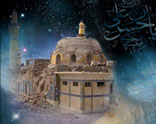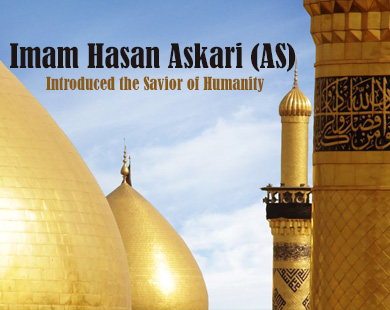Imamate is the firm base of political and social development in Islam. It is one of the most important pillars on which the civilization, safety, and ease of man, and the equality in opportunities among the members of society are built.
It provides the noble life that people can live at ease under its shade. Under imamate, there are no racial or natural differences, but the criterion in Islam is as much as the services man offers to the nation and as much as what takes him closer to Allah.
Imamate is a kindness from Allah and a gift from His mercy. The Shia have believed in the imams of the Ahlul Bayt (AS) and considered that as a part of their doctrinal life depending on many reasons such as:
First, the Prophetic traditions in which the Prophet (AS) made it obligatory on Muslims to follow the Ahlul Bayt (AS) whom the Prophet (AS) had made as the equal to the Holy Book.
He said, “I leave to you what if you keep to, you shall not go astray after me. One of them is greater than the other; the Book of Allah which is a rope extended from the heaven to the earth, and my household. They shall not separate until they shall come to me at the pond (in Paradise). See how you will obey me through them.”1
This tradition shows clearly that imamate would be limited to the Ahlul Bayt (AS) and shows that they were infallible because the Prophet (AS) compared them with the Book of Allah, and of course, every error from them would take them away from the Book whereas the Prophet (AS) announced that they would not separate from the Qur'an until they would come to him at the pond in Paradise.
The Prophet (AS) also said, ‘The example of my household for you is like the example of the Noah’s Ark which whoever rode on was rescued and whoever lagged behind drowned, and the example of my household for you is like the example of the gate of Hittah (repentance) for the Israelites that whoever entered through it would be forgiven.’2
Imam Sharafuddeen al-Aamily said when talking about this tradition, ‘You know that the purpose behind comparing them (the Ahlul Bayt) to the “Ark of Noah” is that whoever resorts to them in religion and takes its bases and branches from them shall be safe from the torment of Fire, and whoever turns his back to them is like one who betook himself (on the day of the great flood) to some mountain which might save him from the command of Allah, but he drowned in water and would be in the Hell.
The purpose behind comparing them to the “gate of Hittah” is that Allah the Almighty has made that gate as a matter of humbleness to Allah and submission to His commands, and therefore it was a cause for forgiveness.
This is the point of comparison. Ibn Hajar said, after he mentioned these traditions and others like them, about the cause of comparing them (the Ahlul Bayt) to the “Ark of Noah” that whoever loved and glorified them out of gratefulness to the blessing of their honor, and followed the guidance of their ulama would be safe from the darkness of disagreements, and whoever lagged behind that would drown in the sea of ungratefulness to blessings and would perish in the wilderness of oppression…until he said, ‘and comparing them to the “gate of Hittah” is that Allah has made the entrance through this gate, which was the Gate of Ariha or Jerusalem, with humbleness and with asking for forgiveness, as a cause for forgiveness, and He has made the love to the Ahlul Bayt (AS) as a cause for this nation to be forgiven…’3
Second, the Shia believed and followed the imams of the Ahlul Bayt (AS) because the represented honor and dignity that there were and there will be no likes to them throughout the history of humanity. No one in the whole Muslim world was like them in their guidance, conducts, devotedness, and adherence to Islam.
The faith of the Shia in the Ahlul Bayt (AS) was not out of emotion or fancy, but it was due to the reality and situations of the Ahlul Bayt (AS).
Third, the Shia did not believe in the imamate of the Umayyad and the Abbasid kings because they were naked of moral and humane values. During their reigns, the nation suffered terrible kinds of oppression and cruelty.
They extorted the wealth of the nation and spent it on their pleasures and amusement. They encouraged debauchery and corruption among Muslims. Therefore, the Shia and other than the Shia rose in armed revolts against those rulers in order to establish justice among people.
* Taken from: The Life Of Imam Al-Hasan Al-Askari Study And Analysis By: Baqir Shareef al-Qurashi Translation by: Abdullah al-Shahin
1- Sahih of at-Tarmithi, vol.2 p.308.
2- Majma’ az-Zawa’id, vol.9 p.168, Mustadrak al-Hakim, vol.2 p.43, Tareekh Baghdad, vol.2 p.19.
3- Al-Hashimiyyat, p.22-23.


















